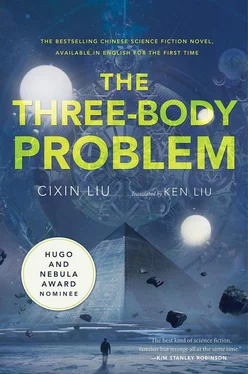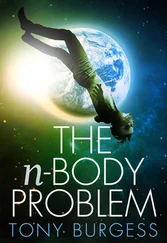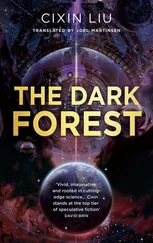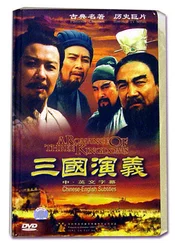In that same year when I was first awed by the concept of a light-year, a flood (known as the Great Flood of August ’75) occurred near my home village. In a single day, a record-breaking 100.5 centimeters of rain fell in the Zhumadian region of Henan. Fifty-eight dams of various sizes collapsed, one after another, and 240,000 people died in the resulting deluge. Shortly after the floodwaters had receded, I returned to the village and saw a landscape filled with refugees. I thought I was looking at the end of the world.
And so, satellite, hunger, stars, kerosene lamps, the Milky Way, the Cultural Revolution’s factional civil wars, a light-year, the flood… these seemingly unconnected things melded together and formed the early part of my life, and also molded the science fiction I write today.
As a science fiction writer who began as a fan, I do not use my fiction as a disguised way to criticize the reality of the present. I feel that the greatest appeal of science fiction is the creation of numerous imaginary worlds outside of reality. I’ve always felt that the greatest and most beautiful stories in the history of humanity were not sung by wandering bards or written by playwrights and novelists, but told by science. The stories of science are far more magnificent, grand, involved, profound, thrilling, strange, terrifying, mysterious, and even emotional, compared to the stories told by literature. Only, these wonderful stories are locked in cold equations that most do not know how to read.
The creation myths of the various peoples and religions of the world pale when compared to the glory of the big bang. The three-billion-year history of life’s evolution from self-reproducing molecules to civilization contains twists and romances that cannot be matched by any myth or epic. There is also the poetic vision of space and time in relativity, the weird subatomic world of quantum mechanics… these wondrous stories of science all possess an irresistible attraction. Through the medium of science fiction, I seek only to create my own worlds using the power of imagination, and to make known the poetry of Nature in those worlds, to tell the romantic legends that have unfolded between Man and Universe.
But I cannot escape and leave behind reality, just like I cannot leave behind my shadow. Reality brands each of us with its indelible mark. Every era puts invisible shackles on those who have lived through it, and I can only dance in my chains. In science fiction, humanity is often described as a collective. In this book, a man named “humanity” confronts a disaster, and everything he demonstrates in the face of existence and annihilation undoubtedly has sources in the reality that I experienced. The wonder of science fiction is that it can, when given certain hypothetical world settings, turn what in our reality is evil and dark into what is righteous and bright, and vice versa. This book and its two sequels try to do just that, but no matter how reality is twisted by imagination, it ultimately remains there.
I’ve always felt that extraterrestrial intelligence will be the greatest source of uncertainty for humanity’s future. Other great shifts, such as climate change and ecological disasters, have a certain progression and built-in adjustment periods, but contact between humankind and aliens can occur at any time. Perhaps in ten thousand years, the starry sky that humankind gazes upon will remain empty and silent, but perhaps tomorrow we’ll wake up and find an alien spaceship the size of the moon parked in orbit. The appearance of extraterrestrial intelligence will force humanity to confront an Other. Before then, humanity as a whole will never have had an external counterpart. The appearance of this Other, or mere knowledge of its existence, will impact our civilization in unpredictable ways.
There’s a strange contradiction revealed by the naïveté and kindness demonstrated by humanity when faced with the universe: On Earth, humankind can step onto another continent, and without a thought, destroy the kindred civilizations found there through warfare and disease. But when they gaze up at the stars, they turn sentimental and believe that if extraterrestrial intelligences exist, they must be civilizations bound by universal, noble, moral constraints, as if cherishing and loving different forms of life are parts of a self-evident universal code of conduct.
I think it should be precisely the opposite: Let’s turn the kindness we show toward the stars to members of the human race on Earth and build up the trust and understanding between the different peoples and civilizations that make up humanity. But for the universe outside the solar system, we should be ever vigilant, and be ready to attribute the worst of intentions to any Others that might exist in space. For a fragile civilization like ours, this is without a doubt the most responsible path.
* * *
As a fan of science fiction, it has molded my life, and a considerable part of the science fiction I’ve read comes from America. The fact that American readers can now enjoy my book makes me both pleased and excited. Science fiction is a literature that belongs to all humankind. It portrays events of interest to all of humanity, and thus science fiction should be the literary genre most accessible to readers of different nations. Science fiction often describes a day when humanity will form a harmonious whole, and I believe the arrival of such a day need not wait for the appearance of extraterrestrials.
I express my heartfelt thanks to Ken Liu, the translator of this and the third volume, and to Joel Martinsen, the translator of the second volume. Their diligence and care created the English edition. I am grateful to China Educational Publications Import & Export Corporation Ltd. (CEPIEC), Science Fiction World Publishing, and Tor Books, whose trust and faith have made this publication possible.
—
Liu Cixin (

),
December 28, 2012
When I was asked to translate The Three-Body Problem, I was incredibly honored, but also full of trepidation: Translating another writer’s work is a heavy responsibility. It’s almost like being asked to care for someone’s child.
The act of translation involves breaking down one piece of work in one language and ferrying the pieces across a gulf to reconstitute them into a new work in another language. When the gulf separating the two is as wide as the Pacific Ocean that separates China from America, the task can be daunting.
The obvious difficulties, such as differences in linguistic structure and cultural references, are actually relatively easy to resolve. The Three-Body Problem begins with the Cultural Revolution, and there are numerous allusions to Chinese history. I’ve tried to keep the number of explanatory footnotes to a bare minimum by, wherever possible, filling in the necessary knowledge for non-Chinese readers by the judicious addition of a few informational phrases in the text (all approved by the author).
But there are more subtle issues involving literary devices and narrative techniques. The Chinese literary tradition shaped and was shaped by its readers, giving rise to different emphases and preferences in fiction compared to what American readers expect. In some cases, I tried to adjust the narrative techniques to ones that American readers are more familiar with. In other cases, I’ve left them alone, believing that it’s better to retain the flavor of the original.
I’ve also tried, wherever possible, to avoid shading Western interpretations into those passages dealing with Chinese history and politics.
Overly literal translations, far from being faithful, actually distort meaning by obscuring sense. But translations can also pay so little attention to the integrity of the source that almost nothing of the original’s flavor or voice survives. Neither of these approaches is a responsible fulfillment of the translator’s duty. In a sense, translating may be harder than writing original fiction because a translator must strive to satisfy the same aesthetic demands while being subjected to much more restrictive creative constraints.
Читать дальше

 ), December 28, 2012
), December 28, 2012











